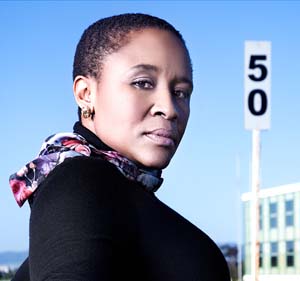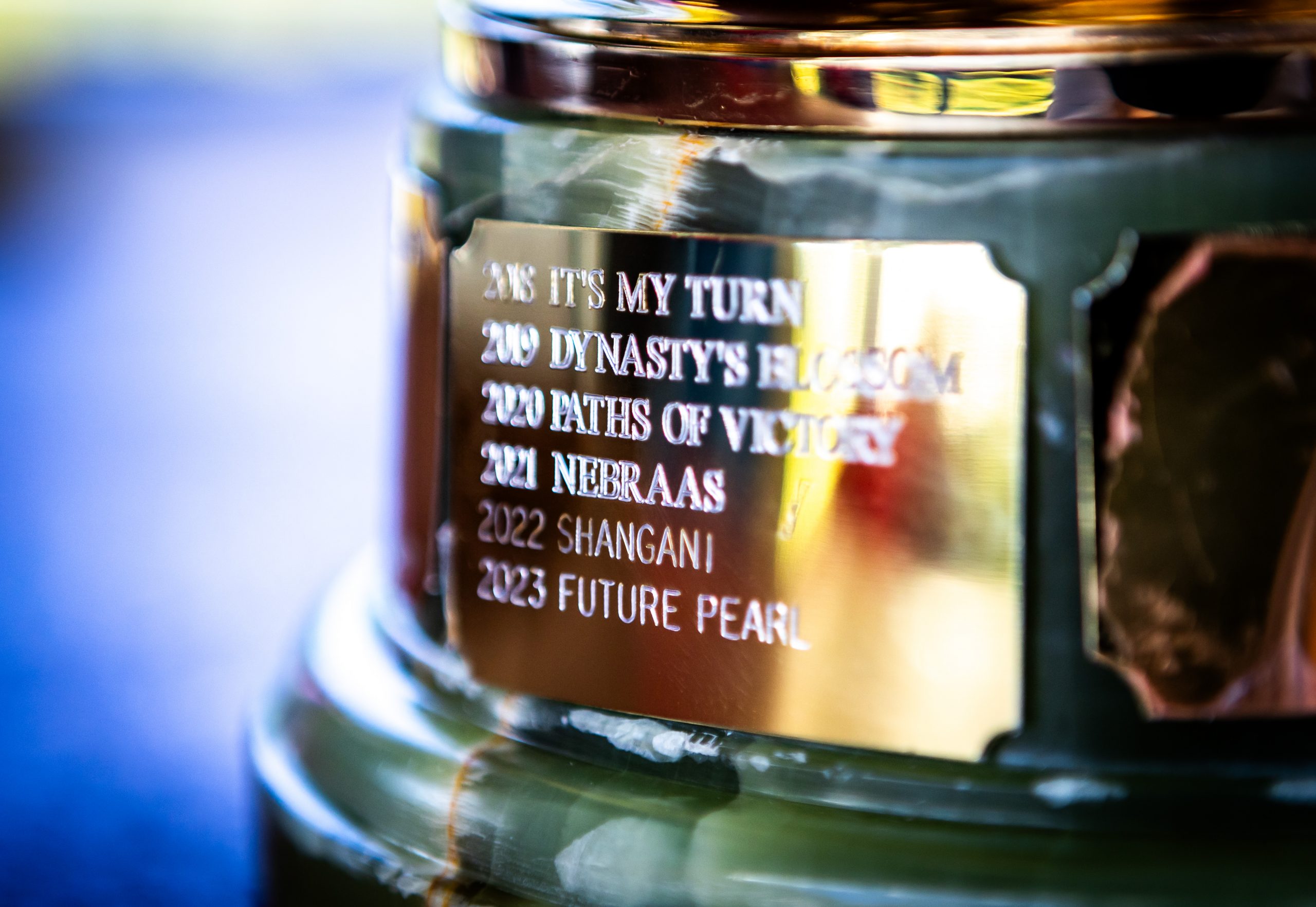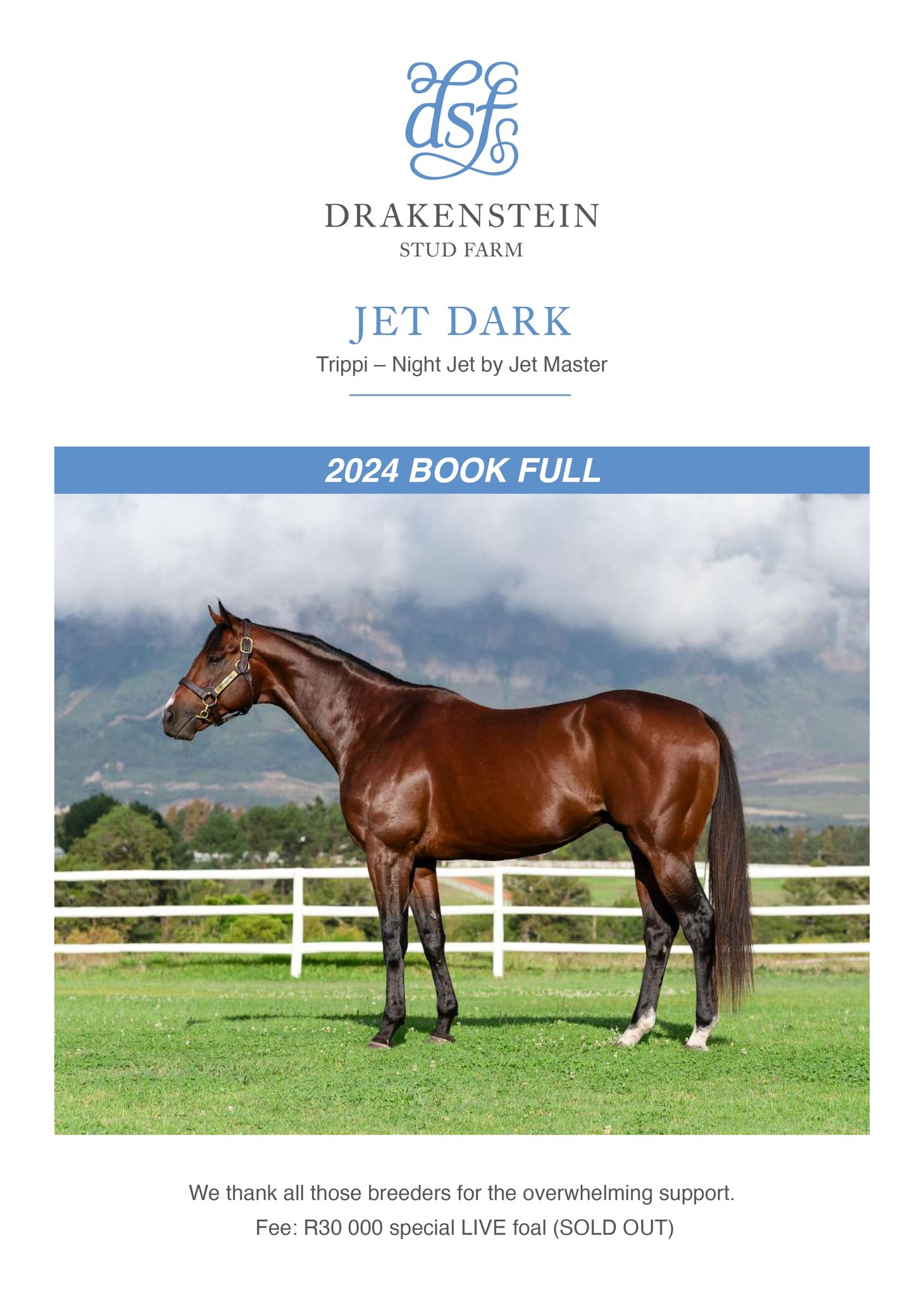
Phindi Kema – Rocking the Turf and the system!
Margo Channing: “Fasten your seatbelts, it’s going to be a bumpy night!”
There’s an iconic 1950’s black and white film called All About Eve, starring Bette Davis and a little known actress who would go on to become known as Marilyn Monroe. In one of the early scenes Bette Davis announces to the assembly “Fasten your seatbelts, it’s going to be a bumpy night!”.
Well, I should probably issue an advance warning and say I hope you’re all sitting down for this, because here it is – I love Phindi Kema. Absolutely no two ways about it. She is, frankly, fabulous.
And I can tell you that I was as surprised as you probably are (or not, depending on where this particular paper is being read … !).
Ask anyone about Phindi Kema and the usual reaction is “Trouble!” (you can sort of hear the capital ‘T’). I like to give most people the benefit of the doubt, so my natural reaction to that sort of comment is ‘Why?’. The answer is usually something along the lines of “I don’t know, she just is !” which usually signals the end of the conversation, leaving one to wander off none the wiser.
I have to say, racing is one of those peculiar animals where fiction fast becomes fact purely because someone has ‘said so’. And that ‘someone’ is usually someone in authority and they usually outrank you. So you’d better just accept it and be done. Because if we’re told something is so, then obviously it MUST be (no need to go employing any actual logic or anything). Sort of like that childhood belief that everything you see on TV is true (and in case this has landed in the hands of anyone under the age of 10, it isn’t. And we probably need to talk about Father Christmas and the Easter Bunny too….).
Anyway, as I’m sure my parents will exasperatedly vouch, I’m one of those awkward creatures that doesn’t accept ‘because I said so’ as sound enough reason to accept something. However, it is also true that once you’ve been told something often enough, you start to wonder whether there’s any truth to it. So imagine my delight when I was invited to chat to Ms Kema regarding her latest piece of mischief. It seems that she is effectively taking the Gauteng Provincial Government to Court and challenging the MOU (Memorandum of Understanding) it signed with the Gauteng Horse Racing industry back in 1997. You all know the MOU I’m talking about, right ? It’s that frightfully secretive document that everyone swears is protected by about 1,000 confidentiality clauses, 3,000 spells, 5,000 dragons and probably resides in one of the Chamber of Secrets in Hogwarts Castle – if indeed this fantastical document actually exists at all, because our operators are also contortion artists when it comes to avoiding actually producing copies of the cursed thing (or in fact anything else that might actually make them accountable for their actions). But I digress. ‘
And it seems I’m jumping a little ahead of myself. So let’s go back a few steps. Exactly who and what is Phindi Kema ? I’d never seen or heard from her directly and I’m fairly willing to bet that most of you reading this have never had the pleasure either. Despite being labelled ‘Trouble’ (which isn’t even all that scary or imaginative when you think about it), I figured I’d probably been menaced far more by local supposed ‘nice guys’, put my big girl pants on and dropped her a line.
A few days later, I received a call from a private number. It was Phindi. She sounded perfectly nice (and perfectly normal), we had a brief chat and she asked whether I would mind emailing her some questions. Which was vexing. My brain works in a rather unorthodox way that I like to consider ‘organic’, which means that rather than carefully planning conversations, I prefer to just have a general chat, pick out the bits I find relevant and go from there. I don’t do the whole linear thinking thing terribly well.
How does one interview Trouble with a capital T? I decided “with caution” and sent a long list of rather complicated, but circumspect questions and, after a suitable pause, Phindi sent back some complicated and circumspect answers.
Phindi describes herself as “a South African woman who lives with her fiance (English national) in Port Elizabeth.” A bit more reading reveals that Phindi was born in Komga and grew up on a farm in Frankfort near King William’s Town. Her grandparents were farm labourers and her parents bred pigs and supplied Karoo Osche abattoirs. She attended the Zigudu Missionary School, followed by Blythswood Institution and was one of only two girls to choose agriculture instead of home economics.
Asked about her family and upbringing Phindi says “My hero is my late grandfather, my mother’s father, Joseph Wilcot Kavie who established a dry cleaning service and later a general dealer. He owned properties when black South Africans were not allowed. He never saw himself as a victim. This is a man who had no formal education but his ability to transcend barriers and his own limitations continues to astound me.”
After matric, Phindi read law at Fort Hare University. Her first job was in the Eastern Cape local government department after which she worked as a coordinator for the Truth and Reconciliation Commission. Following on from that, Phindi occupied a series of senior level corporate positions in Johannesburg, before moving back to Eastern Cape to pursue her passion for farming. She purchased a citrus farm near Addo in the Eastern Cape through the Land Affairs PLAS programme and officially became a farmer in late 2006.
She developed a friendship with her neighbour, the late Thoroughbred breeder Elwyn Phillips and when he decided to sell his Elandskraal stud farm in 2007, she made application to acquire it with the help of the Department of Land Affairs and renamed it Iphi’Ntombi. When I ask what on earth made her want to tackle the breeding / racing industry, she replies “I suppose, it was curiosity.”
Her first foray into the world of breeding proved a success when she sold her first draft on the 2007 National 2YO Sale.
A trip to the Middle East and a look at the international racing industry, gave Phindi a brand new perspective on the South African racing scene and an enthusiasm to help make it more successful. She established the Africa Race Group and launched the idea of a big money South African race to help buoy the industry (the original concept was to establish a new racing centre in Plett).
As one might expect, this maverick idea was not taken very seriously. Phumelela then offered Arlington and Phindi and ARG were in the process of brokering a deal for the sum of R50million, when Phumelela could not give her an occupation date and further told her she will not apply for a Totalisator license, citing exclusivity in South Africa. Phindi says ‘in simple terms they wanted R50 million for a racecourse they paid R1 for” (as per the 1997 MOU) and Phindi says they were being “very impossible”.
She then approached the Competitions Commission who have subsequently launched an investigation into South African Horseracing and Phindi has since lodged a complaint with the Public Protector as well for good measure.
We finally graduate from our email conversation and end up chatting, at length, by telephone. Despite everything I’ve heard, Phindi is intelligent, eloquent, passionate, funny and obviously enormously energetic and dedicated to her cause. She does not seem to be crazy, she does not resort to bad temper, or name-calling, or sour grapes. To the contrary. She talks a lot of sense.
I ask why she’s gone to the Equality Court. “I am challenging the unfairness of everything this MOU has done in South African Horse racing. The transfer of the Totalisator Agency Board (TAB), its assets, rights, obligations and benefits to Phumelela Gaming & Leisure Ltd, the racecourses to Phumelela and even those outside Gauteng’s jurisdiction, Transfer of Horse racing Authority’s (NHA) rights, benefits and obligations to Phumelela. The fact that the whole corporatisation of South African horse racing has unfairly benefited a select few to the detriment of the rest of the industry. This has in fact widened inequities that exist in our country. It has reduced racing significantly and I do not necessarily have to have been in this industry for more than 50 years to make this observation. Nothing like this has ever happened in other sectors.”
And while we’re on the subject of KZN, ARG with its consortium has expressed an interest to purchase Greyville. “We are of the view this being the only government owned racecourse, it should have a social impact and more importantly we wanted to bring the matter out into the open so South Africans become aware that this Racecourse is not owned by Gold Circle. We knew that Gold Circle would start advancing now that they have gotten rid of Clairwood Racecourse.
She says that her group tried to intervene with the sale of Clairwood, urging the operators to consider selling it to another racing entity, rather than simply flogging it to a development company where the asset would be lost. “This is a matter we fought and lost before the Competition Commission. We believed that the Sale of a racecourse owned by the Passmore family to a Property Fund was not right as it deserves to serve the industry and contribute to the heritage of South African Horse racing. It is shocking to see the “quick buck mentality” demonstrated here by a so called Section 21 company. Anything the industry sells we stand to lose it and in actual fact it will cost more to undo. Forget about me, this is not about an individual. This is about protecting prized assets that the racing industry has painstakingly built over hundreds of years. Once these things are gone, they cannot be replaced.”
Phindi says that she has received a surprising amount of support, but as usual, no-one wants to stand up and be counted and challenge the status quo. “I’m apparently saying what you’re all thinking, but no-one else is prepared to be the bad guy!” she says with a laugh. And so the Competitions Commission and Public Protector were her only options. But they, it seem, are prepared to listen.
Apparently, in terms of section 182 of the Constitution of the Republic of South Africa Act 1996, the Public Protector is allowed to investigate any conduct in state affairs or in the public administration in any sphere of government that is alleged or suspected to be improper or to result in any impropriety or prejudice. And having reviewed the evidence presented, the Public Protector has decided to investigate. Which is proof, if nothing else, that the darn MOU does actually exist and worse yet, it seems that whatever is actually in it, is a bit contentious (I know, total surprise, right ?).
Obviously the Competitions Commission and Public Protector are still hard at work pursuing the various balls that Phindi has set in motion.
But in terms of the current state of play, it seems the score reads: Lions 1 – Christians 0.








